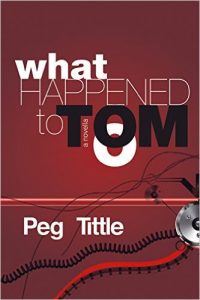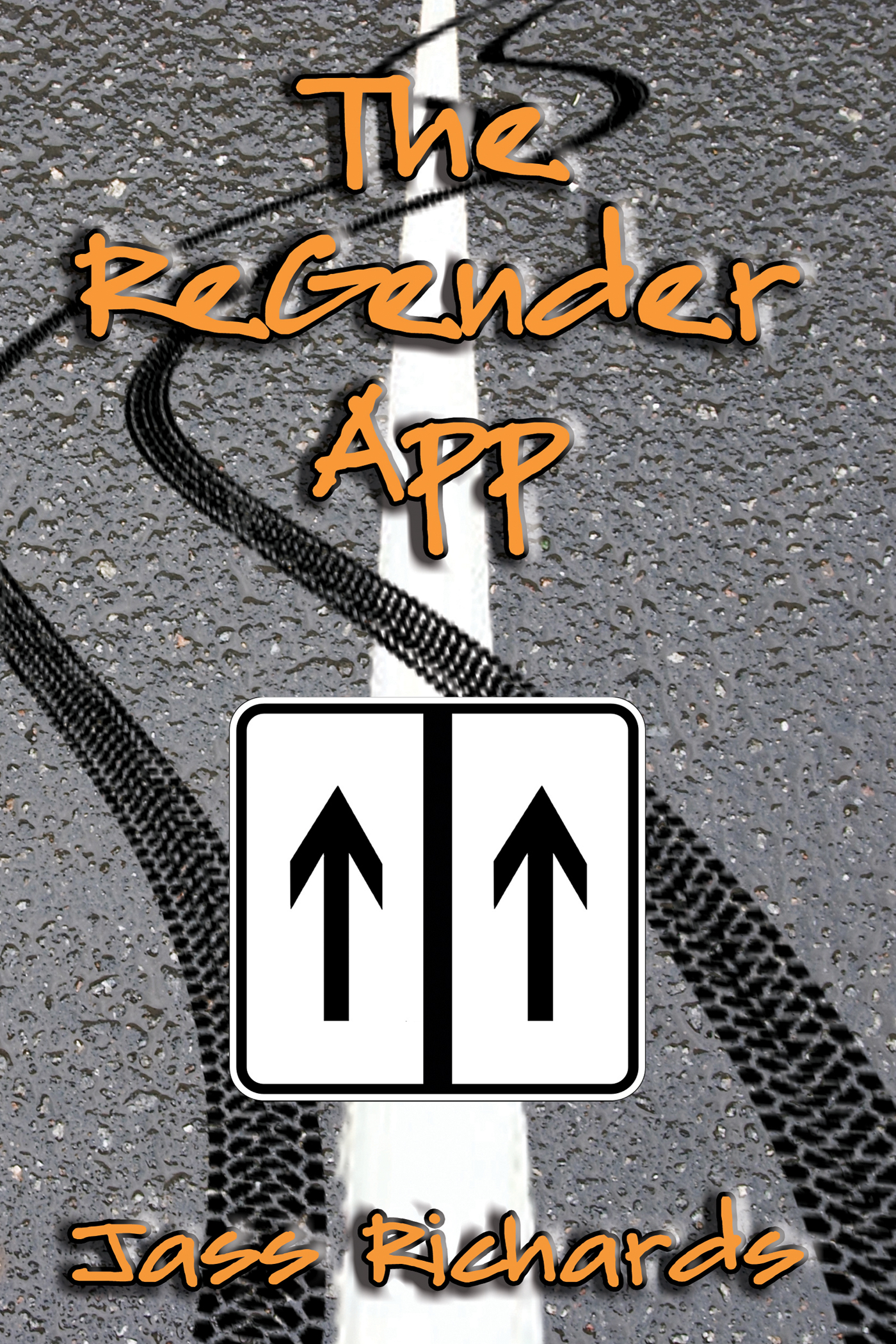Back in 1996, I was fortunate enough to get a job teaching a few courses at a university: several sections of a non-credit remedial English language course, a section of critical thinking, and various applied ethics courses. At the end of the second year, I was notified by the Dean that my student evaluations for the critical thinking course were too low, and I was asked to submit a self-assessment, along with an outline of proposed changes, were I to teach the course the following year.
I submitted the following (slightly edited). (Skip ahead at any time to the elephant in the room.)
*
First, let me say that I was a bit surprised to receive [your] letter. One, I don’t think scores of 3.3 and 3.25 on a scale of 5 are unacceptable; true, they’re nothing to contact OCUFA about, and they’re not what I would like, but they translate to a ‘satisfactory’ (to use the grading scheme we use for our students) 65%. Two, given the ‘uprising’ early in the year, to have brought the course and myself to the favourable side of neutral is, I think, admirable. …
Regardless, you continue to have concerns about my teaching ability, so I will continue to try to alleviate those concerns.
I’ll start by describing changes made [following the uprising]:
1) I agreed, after an hour of consensus-reaching discussion with the class, to weight the “crapbook” assignment (the first assignment which, I believe, started it all, for which students were to simply find examples of logically fallacious reasoning in the media and explain the fallacy) as low as 5% instead of 15%. The remaining 10% could be made up however each student wanted, in 5% chunks, choosing from the crapbook (so for those who did well, it could count the 15% it was originally supposed to count), an in-class test on the fallacies, a homework assignment schematizing the argument of one of the weekly assigned essays, and/or a participation mark.
2) I agreed to consider quantity alone for the participation mark (i.e., it didn’t matter what the student said, as long as s/he opened her/his mouth…).
3) I reduced the length of the final exam (which was originally planned to be exactly like the mid-term, which, you may recall, was thought to be too long) by half for Parts A and B. (Part C, which required the student to argue a position on a given issue, was left as is.)
4) I re-calculated the mark for the mid-term as if Parts A and B had been half as long, with no maximum (i.e., if a student originally scored 23 out of 40, re-calculation gave the student 23 out of 20).
5) I used the mastery approach for the final essay assignment: that is, students could rewrite their essay an unlimited number of times, each time having it marked – thoroughly annotated by me and a number value assigned. Additionally, I scheduled individual student conferences to discuss my feedback, spending up to two hours per student (on top of my usual office hours). (I heard another faculty member say he simply didn’t have the time to do that. I made the time. Pretty good, don’t you think, for a sessional instructor who gets paid half as much per course as a Lecturer, never mind a Professor…)
6) I also added an extra class each week, attendance optional, an hour in length, during which ‘practice Parts A and B’ were worked through. (Way beyond the call of duty here…)
7) I made a public apology in class to anyone I may have offended or ridiculed. (I wish you could have seen the expressions of many as I did so – it was clear they thought the accusations were a ‘crock of shit’.) (Also, I would still like to know, by the way, exactly what the basis was for the accusations of rudeness and disrespect – it’s been really difficult to stop doing whatever it is that’s perceived as rude and disrespectful when I don’t know what it is.) (One student said I didn’t ridicule, I ‘teased’ – I do think this is much more accurate; one teases good-naturedly, one teases one’s friends.)
With all of these changes, the average of the class was, as you requested, not below 69. It was, in fact, 69.5 (excluding, of course, three students who didn’t write the exam and/or the major essay).
Now, as for your requested “self-assessment and an outline of what [I] might propose to change next year” – it was decided, was it not, half way through the first term, that I would not be allowed to teach [the critical thinking course] next year? Nevertheless, I have carefully considered each criterion, and my score (in parentheses, below), and submit the following responses.
COURSE PRESENTATION
1. Required texts were useful (3.50) – I examined 14 texts before choosing the two I used. I chose a logical reasoning text that was fairly easy (I anticipated not having a class full of Philosophy majors) and rather entertaining (there were cartoons throughout). I also chose an argument reader – an anthology of essays on topics as diverse as capital punishment, abortion, smoking, war, mowing one’s lawn, sexism, civil rights, aboriginal rights, and the value of a university education; the essays were varied in length (about 3 to 15 pages) and difficulty (newspaper article to academic essay). Without further feedback, I’m not sure what change to make here…
2. Other instructional material (3.82) – I’m not sure whether quality or quantity was evaluated: in addition to the texts, I used a few handouts as supplements; I also prepared a quiz on overheads to summarize, review, and measure learning outcome achievement at the end of each chapter. Should I have used more materials? Perhaps the overheads were not easily seen by those in the back? Again, I’m not sure what change is in order here.
3. Assignments/Papers useful (2.94) – First of all, because I extended the deadline for the major essay four times (if I hadn’t, there would have been a lot more than three students who received a zero), these evaluations were done before the major essay was done. This is important: I believe that many students experienced significant benefits from the mastery approach and the intensive one-on-one appointments with me. Half of the students eventually wrote an A essay; the average was 78%; they did learn; it was useful.
This score was based, then, on two assignments: the crapbook and the argument schema assignment (which was optional). I can’t believe the crapbook assignment wasn’t useful: as mentioned above, students were to find examples of logically fallacious reasoning on television, in the newspaper, on the radio, in videos, in political party material, etc. And as for the argument schema, being able to read an essay and extract the argument (the author’s point and his/her reasons for claiming that point) should be considered useful to anyone who considers the course useful. (Perhaps that’s the problem. See item 8.) So, again, I’m not sure what change is in order here.
However, knowing now how valuable the mastery approach to the major essay was, I’d use the approach on a smaller essay (a mini version of what the major essay would be) during the first term – and then perhaps not use it with the major essay.
4. Tests (3.39) – I’m not sure what the question was (unfortunately I have only my score sheet, not the questionnaire originals), but I don’t see any problem at all with the one test: students had to identify and explain the fallacy present in three of five given items, and they had the entire class (80 minutes) in which to do this. Perhaps students wanted more tests? They could have said so when we discussed the grading scheme at the beginning of the course. Perhaps they didn’t think the test was fair? Only 12 of them opted to write it (recall, it was optional) and the average was 73%. Again, what to change?
5. Labs/Seminars – N/A
6. Appropriate difficulty (3.00) – While a few students clearly said that the course was a much needed refreshing challenge, 12 of 18 students noted that the course was too difficult. I disagree. And in a way, that’s all there is to it. I think I’m in a better position to know what a second year Philosophy/Critical Thinking course should be like than my students (at least, I’d better be!).
I’d like to point out that ‘appropriate difficulty’ is a problem for most professors here at [name removed] University (it received the second lowest score) – I am assuming the problem is that the courses are perceived to be ‘too difficult’, not ‘not difficult enough’.
The texts I chose were specifically written for this kind of course, at this level, and so they should not have been too difficult. In fact, the logical reasoning text I chose was easier than the one [the department chair] had been using.
I think a large part of the problem was students’ reading skills. The argument reader was, quite simply, way over their heads. Many of them even had difficulty with the newspaper articles – difficulty even with comprehension: they couldn’t tell me what the point was, let alone what the reasons for that point were. And this ability is prerequisite to the course, which focused on whether or not the reasons were good reasons. That Part B on both the midterm and final exam (“Read the passage below, then explain and evaluate the argument.”) was the most poorly done supports my analysis. [A colleague’s] passing comment about the Nelson-Denny results at [name removed] University (there were an alarming number of students who tested at a grade four reading level) also supports my analysis. The course I’m currently teaching also supports my analysis: at the beginning of the class, I give an open book quiz on the assigned reading, and questions like “Does Berns support capital punishment – yes or no?” are not always correctly answered – that is to say, it’s not unusual for students to have read a whole essay on capital punishment and not know whether the author was supporting it or attacking it.
One could say ‘teach to the lowest common denominator’ – but if we’re always teaching to the sparrows, when do the bluebirds get their education? Surely, university is for the bluebirds. Or one could say ‘start at where the students are’ – but this is not high school; students are not required by law to be in my classroom; if the course is too difficult, then they shouldn’t take it (or, at least, not expect an A grade).
And yet, and yet… Perhaps next time, I’ll spend the first month on reading comprehension: I’ll start by having the students read just a one-paragraph piece and tell me what the issue is; once they can do that, I’ll see if they can tell me what the point is; after a week or so, we’d graduate to a letter to the editor; then a short article; then I’ll have them tell me the point as well as the reasons; and maybe by second term, we’ll get to academic essays. But that would be Remedial Reading.
Another large part of the problem is student effort. Attendance was low, or at least lower than I expected (I know, you’ll say this is my fault), and many students seldom put in the three hours it took to be prepared (most had just read the essay – they were also supposed to have figured out the point and the reasons for that point, and thought about relevance, adequacy, and truth, the criteria for a good argument). Had they done this every week, had they put in this practice, I maintain the exams wouldn’t have seemed so difficult. More than one student supported the idea of graded quizzes based on the readings; they were too busy doing the homework for other courses, they said, which was marked. In the same vein, another suggested giving marks for attendance. Frankly, I find this really pathetic: if students need to be rewarded by marks to do the homework, and even to attend the class, then they aren’t really interested; and if that’s the case, again, why are they taking the course? I don’t want to encourage such ‘marks dependency’ nor do I think I should have to entice, coax, cajole, or bribe students – at the university level. However, if most of the other professors here at [name removed] University do give marks for attendance and homework completion, then I can understand why the students were less motivated in my class. And so, much against my better judgement, I am giving quizzes on the readings in my current course; I’ve made them ‘open book’ quizzes and have designed them to act as ‘advance organizers’ for our discussion and review notes for examination preparation, so perhaps it’s not turning out too badly; I would consider continuing with this practice.
And part of the problem was writing skills. Some (many?) students resented the fact that I ‘marked for grammar and stuff’ …; one specifically said on the comment sheet of her evaluation that it was unfair of me to have marked the writing.
What other changes would I make? To be honest, I’d do a little of the Remedial Reading suggested above. But you have often told us not to lower our standards. You’ve also said make sure they get Bs. You can’t have it both ways. (Unless incoming students are better prepared or become better prepared very quickly.)
8. Course Content Valuable (3.12) – Well, this is a sad comment on our society, isn’t it. The ability to think clearly and critically is not valuable. Or perhaps the students think they already know how to think clearly and critically. I think that’s more likely. Trying to get through the ‘It’s my opinion and everyone’s entitled to their opinion’ attitude was like trying to walk underwater. Perhaps next time I’ll open with a video of “The Jerry Springer Show” and then follow it with a video of “Studio 2” – to try to get them to see that they do have something to learn… Though if I start the course by telling them what they can’t do, I’ll be perceived even more as insulting them.
(Reminder that you can jump ahead to the elephant in the room if you’ve had enough.)
INSTRUCTOR
9. Course Objectives were Clear (3.56) – I articulated them orally and wrote them on the board at least four times throughout the year: “To succeed in this course, whether you’re reading, writing, listening, or speaking, you have to know (i) what the point is, (ii) what the reasons are for that point, and (iii) whether or not the reasons are good ones – considering relevance, adequacy, and truth.” And every Thursday, when we considered that week’s essay, these questions were asked, repeatedly. In fact, even the first class icebreaker introduced them to the fundamental concept of the course: they were to introduce themselves to someone by saying ‘Hi, my name is X and I believe A because B’. How many times am I expected to convey course objectives? How could I have been more clear?
10. Grading, Evaluation Criteria (3.22) – Assuming this addressed whether or not the criteria were clear, I confess bafflement. I must have said their writing had to be “clear and correct” a hundred times. I put students’ crapbook items (voluntarily submitted items that received diverse marks) on the opaque projector so students could see what a 5/5 was like and compare it to a 1/5, and I walked them through – ‘See, here the student has stated clearly what fallacy is present, that’s one mark; then the student has defined the fallacy, there’s the second mark, etc.’ When I handed back the mid-term exam, I included perfect answers to every one of the fallacy items, and I had written out an ‘A’ answer to Part B and included that as well. What more to do?
11. Consistent, Fair Grading (2.56) – Almost my lowest score. Amazing, given that I marked blind (that is, students identified their work by student number only) in order to eliminate bias; I also, of course, marked all Part As, then went back and marked all Part Bs, and so on, to further ensure consistency; and, also of course, I marked recursively – that is, part way through, I looked again at the first few answers to be sure I hadn’t drifted, and I looked again at the middle few when I was at the end; lastly, neither [the department chair nor the only other Philosophy professor] thought my marking was inconsistent when I offered a sample for their examination. Suggestions for change?
12. Helpful Comments and Feedback (3.00) – Again, I remind you that this was before the major essay assignment. Nevertheless, this is again a puzzle. Perhaps the students couldn’t recognize the help; perhaps they thought that my Socratic questions leading them to the light were just bludgeoning them into the dirt. Or perhaps they just wouldn’t recognize my help. More on this later.
13. Meaningful examples (3.56) – What do you want me to say about this one – I do try and will continue to try to provide meaningful examples.
14. Organized, well-planned (3.33) – Again, a mystery. I am compulsively organized. I recall twice forgetting to assign homework questions, and once I put the wrong overhead on the screen. Is that really, seriously, a problem? There is, simply, no need for change here.
15. Opportunity for Questions (3.72) – I consistently solicit questions in class; I am in my office during office hours. No room for improvement here.
16. Clear, Effective Answers (3.11) – This was the first time I taught this course and so I was fielding questions in this area for the first time. Yes, there were times I was not as incisive as I might have been. I’ll do better next time.
17. Encouraged independent thinking (3.44) –
18. Challenged, provoked thought (3.50) –
On both criteria, more mystery. Rather, misunderstanding. I would’ve thought both of these items would have scored over 4.0. It makes me think that these students have never been exposed to the Socratic pedagogical style before. And actually, I do think this is part of the problem. If most professors lecture, then indeed I am unusual, indeed students don’t know how to take my constant questions, my constant challenges – perhaps they take them as insults. Perhaps when I present an opposing view, they think I’m genuinely disagreeing with them and they are offended. Perhaps when I insist on reasons, they think I’m insisting that they’re wrong (and that I’m right – and hence I’m not encouraging independent thinking but, instead, I’m encouraging them to agree with me…).
Also, we’re back to ‘It’s my opinion and I’m entitled to it’ and a built-in difficulty with this kind of course: not only do I push (and I do – I push, I prod, I prick), I do so close to their hearts – the content (abortion, capital punishment, the pursuit of profit…) is more personal than, say, physics.
Next time, I’d do a lot of advance explanation of my pedagogical style. The Rasool text has an excellent ‘Note to the Student’ explaining that when professors ask for reasons, they are not insulting you … apparently I’m not the first Critical Thinking professor to have been so misunderstood … I really didn’t think I had to explain all of this…
19. Made the course interesting (2.78) – Wow. If issues such as those in the argument reader (see above) and assignments like the crapbook (see above) aren’t interesting, I don’t know what is. (Actually, if they aren’t, then the student should’ve dropped the course.) One of our classes was a United Nations simulation in which students were Iraq and Israel, Somalia and Bosnia, and Ireland, and the rest of us were whatever country we wanted to be. In another class, we played a game I made up called ‘Argument Chess.’
I speak with an animated and enthusiastic voice (which also happens to be genuine). While I can’t move around the room, I do move back and forth at the front rather than planting myself in one spot for the whole class. I vary the mode of presentation (Tuesdays was mostly text and oral with overheads; Thursdays was mostly text and visual and then discussion – in twos, small groups, and large groups, sometimes assigned groupings, sometimes student-selected).
I think I made the course as interesting as I need to; I am not wholly responsible for whether or not the students are interested.
Honestly, I think there was something else going on here… The elephant in the room.
20. Clear effective voice (4.06) – Can I assume this score is acceptable?
21. Responsive out-of-class (3.82) – How would they know? 90% of my office hours were not used. (And again, this was before the intensive appointments about their essays.) No improvement needed here.
22. Up-to-date knowledge (3.50) – I confess, I do not have up-to-date knowledge on all the issues we discussed. But I don’t think I am expected to: when we evaluate argument, we say ‘If the premises are true, this would be a valid/sound argument’ – we leave the determination of truth to those qualified.
23. Learning Environment (2.44) – Surely who’s in the class affects the learning environment as much as, if not more than, the professor. I must confess I think the critical thinking course was a case of ‘a few bad apples’ – I agree with the student who said, on the comment sheet, “There were a lot of immature students in this class who didn’t respect [the prof] and gave her a hard time no matter what she did.”
You may ask then, why was this so? Why did they give me such a hard time? Good question. One student suggested that it was because I didn’t have a Ph.D. Though a few others complained that I constantly flaunted my degrees! (Like I’d flaunt an M.A.)
Another suggested that things would’ve been different had I been teaching in the auditorium rather than in a portable. Apparently being in the portables is a low-status indicator.
Another suggested that students were so free to express their opinion in my class, they kind of got carried away.
A few said that I shouldn’t have let them get away with so much, I should have asserted my authority more; and others complained that the class was run like a dictatorship.
One complained that I was always right and the student was always wrong and I made that perfectly clear. (If I say the answer’s 5.4 and my student says it’s 3.2, I’d better be the one who’s right, and I’d better make it clear to the student!)
What do I think? How do I explain the hostility?
1) I think a lot had to do with the marks – as I pointed out earlier, the uprising occurred only after the first assignment was marked. Perhaps some of the hostility toward me was displaced anger and frustration with their grade. Next time then, the first assignment will be earlier, and while it will be marked, it won’t count. Also, I’d like to say that next time, the exam will be worth 30% and everything else will be weighted according to each student’s preference, decisions to be made at the end of the course. Perhaps also next time I should find out before the course begins what the average grade is supposed to be.
2) Also, my style is somewhat personal. I would often share bits of what I was doing or had done, as conscious role modelling; I’d say things like ‘That’s exactly an issue I’m struggling with right now in a paper I’m working on’ or I’d refer to my own article on euthanasia when we read the anthology selection on euthanasia. Unfortunately student comments indicate that this was perceived as bragging – so I guess I won’t do this next time.
3) My guess is that some students simply didn’t take the course seriously right from the beginning because (a) they thought that Philosophy was an easy, rather than a rigorous, discipline; (b) they thought that any course without a prerequisite would be a breeze; (c) they were convinced they already knew how to think; (d) they assumed that since the course was very much about opinions, it would be easy because, after all, ‘everyone’s entitled to their own opinion’ so all that’s necessary is to have an opinion….
4) Unlike other courses, there is very little content in a critical thinking course to ‘save’ them; there is no research to be done, there is no knowledge per se to acquire – this is pure critical thinking (the stuff that brings their other marks down) (here it is the only stuff). I find it interesting that with blind marking, the top student was a Math student; there is a close relation between Math and Philosophy in their disciplined clarity of thought; Math is right up there with Physics and Philosophy regarding GRE scores.) One of my [former] professors recently said to me that she first thought this course would be easy to teach because there’s no content; then she realized it was the hardest to teach – because there’s no content. And since it’s purely a skill course, practice is essential – and I don’t think most students did the practice I assigned. Perhaps like Statistics, this is a course that students need to take twice to pass.
*
Of course, even while I was preparing the above response, it occurred to me that all of it could be irrelevant, an exhaustive and exhausting bucket of red herrings. Why did the students complain? Why were they so resistant to my questions, my comments, my instruction? Because I’m female. That’s the elephant in the room. There’s no way men (and many of my students were male) are going to take instruction from a woman. There’s no way men are going to concede to a woman, grant that she’s right and they’re wrong. There’s no way men are going to consider women competent. [I found out later, regarding another course, that a male student actually organized a meeting or petition, then presented a list of sixteen complaints to the Dean, one of which was “She puts comments on our essays.”]
But I came of age in the 70s, obtained my teaching degree and my first teaching position in the early 80s, when we were developing non-sexist language and revamping the dead-white-male canon, and taught joyously and enthusiastically through the 80s; I then moved to a backwoods sort of place that I thought was just behind the times a bit – through the 90s, I assumed the rest of the world was progressing in the direction set in the 70s and 80s.
So one, I thought that my sex couldn’t be the explanation for my experience at the university, or at least not the whole explanation, because we were so past sexism. And two, I thought that that explanation was so obvious as to not merit mention; I assumed everyone my age or younger (the Dean, for example, and most of my colleagues) was as up-to-speed as I was about sexism in the classroom.
I didn’t know about the backlash. I didn’t realize that all the ground we had gained, and then some, had been lost. So I was wrong. So very wrong. On both points.
Some time after I’d prepared my detailed, anguished response to the Dean’s letter, I happened to stand outside a male colleague’s class for a few minutes (I’d been invited to do a special talk on ethics and economics), and I was amazed at the quiet: no one was interrupting him; no one was challenging his every word; no one was competing with him. That is to say, they were not trying to undermine his authority; they had accepted it. Because he was male.
Just in case you haven’t had enough, before I was completely ‘fired’ (a.k.a. not asked to teach any other courses), yet another (male) student went to the Dean to complain. I may be wrong, but I suspect that he never would have done so if a male professor had refused, given the circumstances indicated in my response below, to increase his grade.
*
Please consider this as comment/rebuttal to Cody’s allegation of unfair treatment in [Ethics for Social Science]:
1. I don’t fully understand Cody’s first point: “with a considerable amount of commentary and another re-write, [his first paper] was worth at least a pass.” Students were not allowed to submit re-writes of the first paper (not one, and certainly not “another”), and any “commentary” he wanted to include in his paper would have been, should have been, included in the version he submitted.
Also, I’d like to point out that I met with every student, Cody included, on a one-to-one basis, discussing in detail their first paper – partly because it was indeed their first, partly because the final exam would be similar, and partly because such feedback is simply excellent pedagogy and my classes are usually small enough that I can do this.
2. I did not grant an extension to any student for the second paper, certainly not to a student who “simply forgot about the due date.”
I did allow a student to hand in the third assignment a week after it was due: I had changed the due date, moving it earlier by a week, and she apparently was not present when I announced the change (she was working to the original due date as per the course outline).
Also, I did allow two students to resubmit their second paper, but this was clearly not permission to rewrite: while both students had identified the secondary source they used, they did not include quotation marks wherever they quoted – I merely refused to mark their papers until they inserted the quotation marks (so I could clearly see what was their work and what was not). Believing that Cody, and perhaps others, misunderstood that as permission to rewrite (and therefore evidence in unfairness), I explained at some length to the class as a whole exactly what I was permitting those two students to do; unfortunately, that was a day Cody arrived late, and I had to therefore repeat the explanation – it’s possible my repeat explanation was abbreviated, leaving Cody without full understanding the distinction between ‘rewrite’ and ‘resubmit’.
Further, I’d like to point out that with regard to the second paper, students were required to submit an extensive outline four weeks before it was due. I provided extensive feedback two weeks hence (again, meeting with students individually), leaving them two weeks to rework (if necessary) and write up the paper – I, thus, ‘built in’ the re-write option. Cody, however, did not take advantage of this: he did not submit an outline, but, instead, simply submitted a completed paper on the final due date. (Such preliminary feedback was also allowed for the third assignment; again, Cody did not take advantage of that.)
Further still, with regard to the second paper, I did allow a few students to re-write their paper correcting their grammar and punctuation (but not changing the content at all); they could then resubmit it for a slight increase in the grade (for example, a C+ would turn into a B-). Cody was one of these few students, but he did not bother to correct and resubmit his paper.
3. With regard to Cody’s class participation mark, those marks were based not only on quantity, but also on quality of contribution. As for quantity, attendance was also taken into account: Cody missed at least two full classes, which I consider substantial in a course totalling a mere twelve classes. As for quality, Cody’s contributions were very poor. For example, in a discussion about whether one is morally ‘allowed’ (the weak version) or morally ‘obligated’ (the strong version) to tell someone that someone else is HIV positive, Cody’s contribution was something like ‘And what about at places like Casino Rama where they have a separate trash can for needles in the washrooms?’ Such a comment is indicative of Cody’s continued (that discussion occurred during the last class) inability to understand and follow the arguments that comprise the course content – and that, not my unfairness, explains his failing grade.
It is certainly quite possible that I use different assessment standards than Cody is used to: ethics is quite a different course than, say, marketing or accounting. However, I believe I use standards appropriate for the course, and they are, thus, not unfair. And I have used the same standards for Cody as I have used for the other students in that course – which is to say, again, that I have not been unfair. (Of course, much depends on one’s definition of ‘fair’ – as this was a topic we explored at some length in the course, it’s disappointing, but not surprising, to see Cody using the term with such imprecision.)
*
As I say, if I were a male professor, I doubt Cody would have gone to the Dean.
Perhaps more importantly, if I were a male professor, I would not have assumed the students’ feedback on the course evaluations to be sincere and, therefore, personal, so I probably would have responded to the first Dean’s request, above, with just a short paragraph full of generalities about making changes, making improvements.
And that would have been the end of it.
















